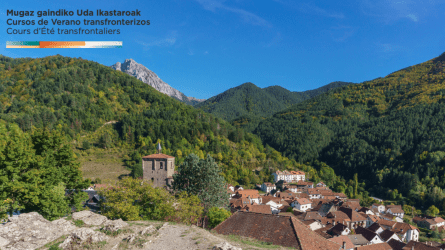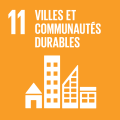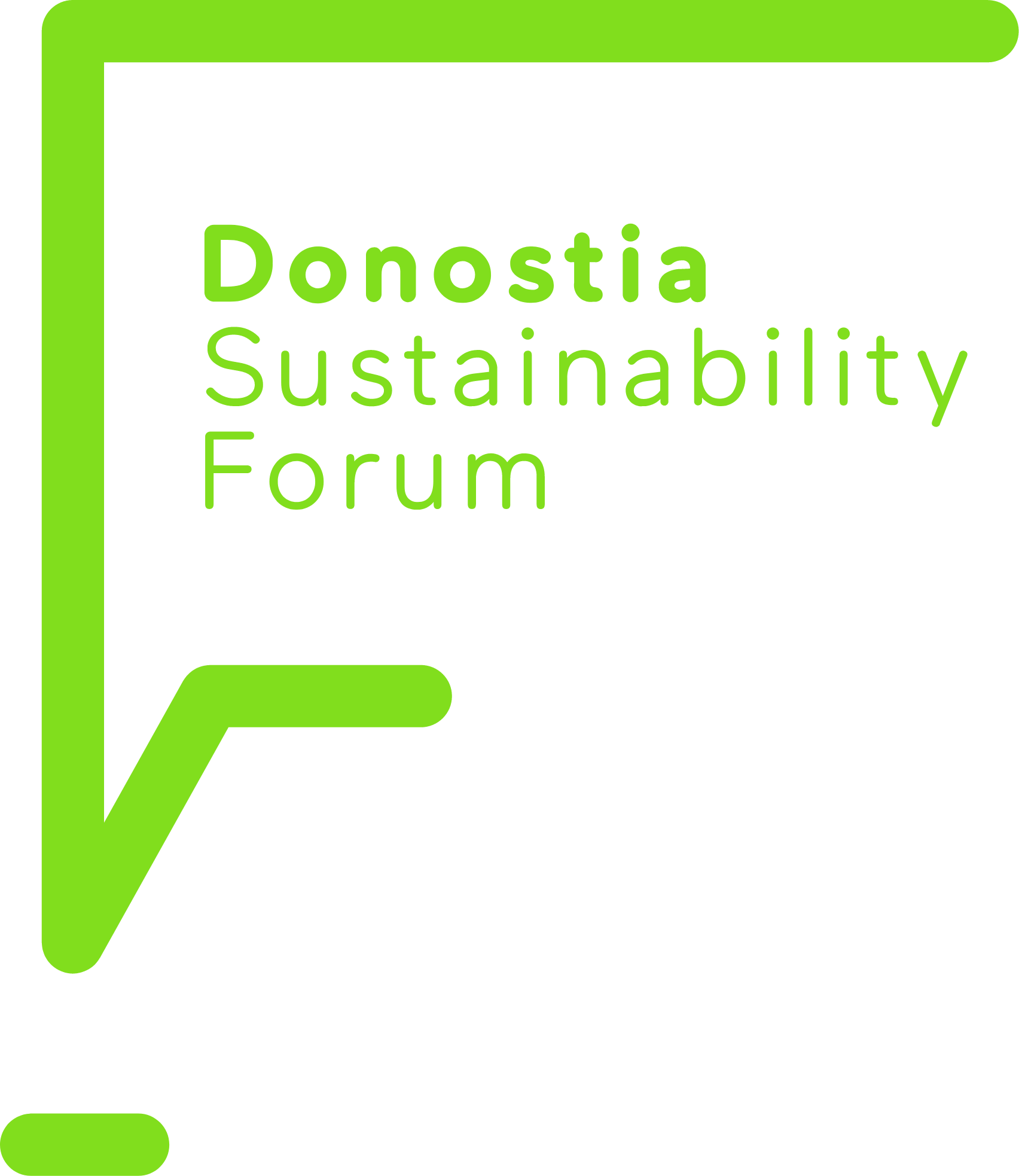
El medio rural ante el cambio global: una mirada geográfica
Description
In the current scenario of global change, it is crucial to comprehend the intricate interactions among demography, land-use patterns, and ecosystem services in rural areas. This understanding serves as the foundation for devising policies and strategies that foster sustainability and development within these communities.
In this Summer Course, we will initiate by highlighting the distinct spatial dynamics that characterize the reality of rural territories. We will delve into specific challenges associated with population aging and depopulation, exploring the repercussions of limited job and educational opportunities on population retention. Additionally, we will assess current housing policies and their efficacy in addressing housing shortages, with the aim of encouraging stronger ties within the younger population.
The study of the rural landscape, an integral component of cultural heritage, will hold a central position in our analysis. Consequently, we will explore strategies for its preservation and sustainable management, recognizing its significance in the cultural identity of these communities.
Emphasizing the role of ecosocial practices that promote sustainability in rural areas, we will underscore the necessity of addressing disparities in access to basic services and environmental resources. In connection with this, we will critically examine, from a spatial planning perspective, the approaches and challenges in rural land management, analyzing how territorial policies can contribute to mitigating disparities between rural and urban spaces.
Objectives
To generate debate on the differential characteristics of rural areas and their specific problems, in order to put on the table solutions that are being implemented in different territorial contexts and that may be useful in the context of the Basque Euroregion.
Activity directed to
- All public
- University student
- Teachers
- Professionals
Directors

Itziar Aguado Moralejo
UPV/EHU
Degree in Business Administration and Management (UPV / EHU), Ph.D. in Economics (UPV / EHU), and Extraordinary Doctorate Award in Social Sciences (2008). She is a professor at the University of the Basque Country, in the Department of Geography, Prehistory, and Archeology, where she teaches the subjects of urban geography and urban planning. Her main lines of research are territorial and urban studies, geodemography, the evaluation of public policies, and sustainable development. On this subject, he has published numerous articles, some in journals such as Papers in Regional Science, Geoforum, European Urban and Regional Studies, or Environment & Planning A. She is a member of the Built Heritage Research Group of the Basque System of Science, Technology, and Innovation and participates in the project "Urban segregation, institutional density, social innovation and political attitudes in large Spanish cities".
Speakers

Itziar Aguado Moralejo
UPV/EHU
Degree in Business Administration and Management (UPV / EHU), Ph.D. in Economics (UPV / EHU), and Extraordinary Doctorate Award in Social Sciences (2008). She is a professor at the University of the Basque Country, in the Department of Geography, Prehistory, and Archeology, where she teaches the subjects of urban geography and urban planning. Her main lines of research are territorial and urban studies, geodemography, the evaluation of public policies, and sustainable development. On this subject, he has published numerous articles, some in journals such as Papers in Regional Science, Geoforum, European Urban and Regional Studies, or Environment & Planning A. She is a member of the Built Heritage Research Group of the Basque System of Science, Technology, and Innovation and participates in the project "Urban segregation, institutional density, social innovation and political attitudes in large Spanish cities".

Myriam Casamayor
Myriam Casamayor, docteure affiliée au laboratoire PASSAGES et urbaniste au cabinet UA64, s'intéresse à la politique d'aménagement du littoral néo-aquitain, valorisant ainsi la recherche comme un outil d'aide à la décision publique et tirant parti de ses expériences professionnelles dans le privé. Elle a d'abord obtenu un Diplôme Universitaire de Technologie (DUT) en carrières sociales, gestion urbaine et développement touristique à Périgueux. Ensuite, elle est partie un an en Erasmus à Valence (Espagne), ce qui lui a permis de prendre conscience des effets pervers du tourisme. C'est suite à cette expérience qu'elle a décidé de ne plus s'orienter vers la création de projets touristiques, mais plutôt d'accompagner les territoires dans la recherche de leur équilibre entre développement et préservation des espaces. Elle a ainsi obtenu un Master 2 en urbanisme, habitat et coopération internationale en alternance à l'Institut d'Urbanisme de Grenoble. Après diverses expériences professionnelles (notamment à l'agence d'urbanisme catalane de Perpignan, dans des bureaux d'étude à Pau et à Bordeaux, ainsi qu'un passage au Conseil des élus et au Conseil du développement du Pays Basque), elle a comblé le manque de connaissances concernant l'h

Nagore Dávila Cabanillas
Licenciada en Geografía (2005) y Doctora en Geografía (2010) por la Universidad del País Vasco, siendo beneficiaria de una beca predoctoral de Formación de Investigador del Gobierno Vasco. Pertenece al área de Geografía Humana del Departamento de Geografía, Prehistoria y Arqueología de la UPV/EHU, donde combina docencia e investigación. Es coordinadora de segundo curso del Grado de Geografía y Ordenación del Territorio y pertenece a la Comisión Permanente como coordinadora del área de Geografía Humana. Forma parte del Grupo de Investigación en Patrimonio Construido, habiendo participado en diversos proyectos de investigación de naturaleza competitiva. Su actividad investigadora se enmarca en el área de la ordenación del territorio. Más concretamente, se relaciona con el análisis y evaluación de los diferentes instrumentos de planificación territorial en sus diferentes escalas territoriales. El trabajo realizado en estas líneas de investigación se ha publicado en diversas revistas, entre las cuales cabe destacar el Boletín de la Asociación de Geógrafos Españoles. En cuanto a su actividad docente, ha impartido docencia en el Grado de Geografía y Ordenación del Territorio, en el grado de Ciencias Ambientales de la UPV/EHU, así como e

Luis Del Romero Renau
Licenciado en Geografía por la Universitat de València (2003) y Doctor en Geografía por la Universitat Autònoma de Barcelona(2008) con la calificación de Sobresaliente Cum Laude. Ha sido investigador posdoctoral en la Universidad Laval (Canadá) y posteriormente investigador contratado en la Universidad de Québec en Montréal. Ha sido además profesor visitante en las universidades de Friburgo (Alemania), Chile y Temuco (Chile), Buenos Aires (Argentina) y Santander (Colombia). Pertenece al grupo de investigación Recartografías en medio ambiente y Ordenación del Territorio, especializado en el estudio de conflictos territoriales y el problema de la despoblación del medio rural. Desde 2014 lleva a cabo un proyecto de rehabilitación de la aldea de Mas Blanco en Teruel y en 2019 abrió el Museo de las Masías y de la Memoria Rural que ha resultado premiado por FITUR en 2024 por su contribución a la dinamización de territorios rurales. Ha publicado más de 60 trabajos entre libros, artículos y capítulos de libro en revistas como Eure, Canadian Geographer o el Boletín de la AGE entre otros. Actualmente es profesor titular de Geografía en los grados de Ciencias Ambientales y Ciencias Políticas. Ha participado en varios proyectos del Ministerio

Mario Hernandez Trejo
Antropólogo Social por Universidad Autónoma Metropolitana (México, 2012), Máster en Medio Ambiente y Desarrollo (2014), y Doctor en Geografía Humana por la Universidad de Manchester (2020). Desde 2022 es profesor asociado en el Departamento de Geografía e Historia (del Arte) de la Universitat de Lleida. Tiene experiencia docente como asistente de docencia en la Universidad de Manchester (2015-2018) y como lector en Política Ambiental en la Universidad De Montfort (2019-2020, Leicester, Reino Unido). Sus temas de investigación giran en torno a las siguiente temáticas y campos: Cambio y desarrollo agrario; desarrollo local rural, ecología política; ambientalismo de mercado y diseño de políticas; los impactos de la conservación ambiental en contextos rurales; la teoría de la renta de la tierra, la relación entre el cambio de uso de la tierra y las transformaciones agrarias; la relación entre el comercio internacional y los cambios de uso del suelo. Recientemente ha participado en proyectos de investigación enfocados al despoblamiento en zonas rurales del poniente de Cataluña.
Registration fees
| Face-to-face | Until 18-07-2024 |
|---|---|
| 0 EUR |
| Live online | Until 18-07-2024 |
|---|---|
| 0 EUR |
Venue
Aquitaine
Aquitaine
Sustainable development goals
Agenda 2030 is the new international development agenda approved in September 2015 by the United Nations. This agenda aims to be an instrument to favour sustainable human development all over the planet, and its main pillars are the eradication of poverty, a reduction in equality and vulnerability and fostering sustainability. It is a unique opportunity to transform the world up to 2030 and guarantee human rights for all.

11 - Sustainable cities and communities
Make cities and other human settlements inclusive, safe, resilient and sustainable. Key issues: access to suitable housing and basic services that are secure and affordable, suitable and sustainable transport systems, inclusive urban planning, participative planning and management, protection of cultural and natural heritage, air-quality, green zones, and connections between urban, peri-urban and rural areas.
More information




